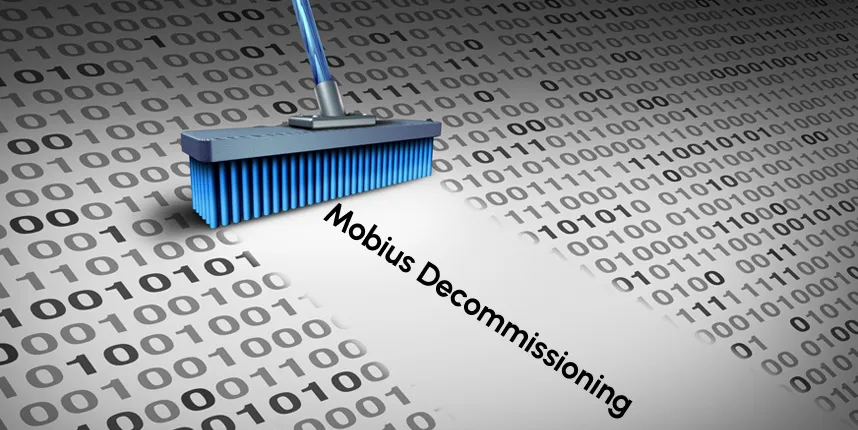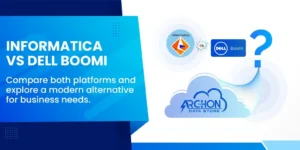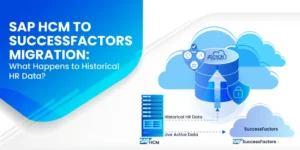Mobius, originally designed for enterprise content management and archiving, has been a staple in the industry for decades, widely adopted by businesses for managing large volumes of data. However, as technology advances and business requirements evolve, Mobius is increasingly viewed as a legacy system. Its outdated architecture, high maintenance costs, and limited scalability pose significant challenges for modern businesses. Mobius decommissioning need not be as daunting as it seems.
Many organizations are now decommissioning the Mobius system to modern, cost-effective solutions that align better with current data management strategies. Yet, with the right approach, automation can turn what feels like a difficult task into something much more manageable and efficient. The process becomes streamlined, saving both time and effort.
Why Automate Mobius Decommissioning?
Manual decommissioning of Mobius is not only labor-intensive but also prone to errors such as data misalignment or incorrect document parsing. This is where automation steps in by offering a more efficient and reliable solution. Automating Mobius decommissioning is the optimal approach for the following reasons:
- Time Efficiency: Automating the decommissioning of Mobius dramatically shortens the timeframe needed for data extraction, sorting, and reorganization. Manual processes can extend over months, whereas automation can reduce this timeframe significantly, completing tasks in just weeks. Therefore, businesses can transition away from Mobius more rapidly, minimizing downtime.
- Reduced Human Error: Decommissioning Mobius involves handling vast amounts of complex data, often formatted in intricate structures. Manual methods are time-consuming and increase the chances of errors, including data loss, formatting issues, or compliance problems. However, automation eliminates most of these concerns by relying on sophisticated tools designed to maintain data integrity and ensure accuracy from start to finish.
- Cost-Effectiveness: While it may seem that manual migration could save on upfront costs, automation is ultimately far more cost-effective. Automated tools allow businesses to complete the migration with fewer personnel and reduced overhead, translating into significant cost savings. Moreover, automation cuts the overall project duration, further decreasing the associated costs of labor and Mobius maintenance fees.
- Scalability: For businesses with extensive data repositories, manual decommissioning is often infeasible requiring a massive workforce and resources. However, automation handles large-scale data migration effortlessly. The automated tools are designed to scale in line with your data needs, whether you are dealing with a small dataset or terabytes of information. Therefore, no matter the size, automation simplifies the process.
How Mobius works
Mobius is renowned for its ability to manage extensive volumes of reports and document archives. Its core capabilities are crucial for understanding the challenges involved in migrating away from the system:
- Massive Data Storage: Mobius stores large amounts of data, making it an ideal choice for businesses with massive document retention requirements.
- Logical Document Separation: It offers sophisticated features for logically separating reports and documents into subsets, allowing easier access and retrieval based on criteria defined by the user.
- Advanced Formatting and Indexing: One of Mobius’ most distinctive features is its support for advanced document formats such as IBM AFP and Xerox DJDE/Metacode—which allow for detailed formatting and indexing.
- Secure Access and Compliance: Mobius also provides robust security measures, restricting document access to authorized users only ensuring that compliance with industry regulations is maintained.
- Print Stream Management: One of the main functions of Mobius is its ability to handle complex print streams, allowing for efficient management and distribution of large-scale printing operations.
Despite its strengths, Mobius lacks the flexibility and compatibility of modern systems—making migration a necessary step for many companies seeking efficiency. Additionally, data often becomes siloed within Mobius, limiting its accessibility and usefulness across the organization.
Overcoming Common Challenges with Mobius Decommissioning
Migrating from a system like Mobius often presents several challenges—challenges that automation is specifically designed to overcome. For instance:
- Data Complexity: Automation tools like ETL (Extract, Transfer, Load) manage the complexities of Mobius’ advanced formats, ensuring that all documents are accurately migrated without data loss or corruption.
- Shortened Timeframes: Manual migrations are known for dragging on for months, while automation drastically reduces this timeline, allowing businesses to transition from Mobius more swiftly, minimize disruptions, and move forward with modern systems sooner.
- Maintaining Compliance: Handling sensitive data always comes with regulatory obligations. Automation eases these concerns by adhering to compliance standards throughout the migration—helping you avoid potential pitfalls.
- License Cost Reduction: Mobius license costs can be painfully high. Automation accelerates the decommissioning process, allowing businesses to more quickly transition away from Mobius and reduce or eliminate these ongoing expenses.
The Automated Migration Process for Mobius Decommissioning
At Platform 3 Solutions, we have developed a carefully structured, automated approach for Mobius decommissioning. It is an easier process for businesses to migrate from legacy to modern systems.
- Initial Assessment and Planning: The process begins with an in-depth assessment of your existing Mobius environment, which involves analyzing data volume, document formats, and business-specific needs. This allows us to develop a tailored migration plan that ensures a smooth transition.
- Data Extraction and Transformation: Once planning is complete, the data extraction phase begins. Using automated tools, data is securely extracted from Mobius and then transformed into formats compatible with your new system. Automation guarantees that all information is accurately preserved during the transformation, minimizing the risk of data loss.
- Validation and Quality Assurance: Validation and quality checks are vital steps in any migration. Before data is moved to its new system, we carefully assess its accuracy, ensuring that everything transfers properly.
- Data Ingestion into the New System: The data is ingested into the new system. Automation makes sure the transition runs smoothly, minimizing any potential downtime so your business can keep operating without missing a beat.
- Seamless Integration: One of our key advantages is the ability to seamlessly integrate with your live systems during the migration process. This ensures minimal disruption to your ongoing operations while facilitating a smooth transition.
Advanced Function Presentation (AFP) in Mobius Context
Mobius extensively utilizes Advanced Function Presentation (AFP), a document and print stream format developed by IBM. AFP is crucial in Mobius for several reasons:
- Complex Document Formatting: AFP allows for intricate layout and formatting of documents, supporting various fonts, images, and graphical elements.
- Print Stream Optimization: It enables efficient handling of large print volumes, crucial for organizations dealing with massive amounts of documents.
- Resource Management: AFP supports external resources like fonts and images, allowing for their reuse across multiple documents and reducing file sizes.
- Variable Data Printing: It facilitates the creation of personalized documents by easily incorporating variable data.
Handling and Parsing AFP
At Platform 3 Solutions, we have developed specialized tools to handle and parse AFP data effectively:
- AFP Parsing: Our automated tools can accurately interpret AFP print streams, extracting both formatting information and content.
- Data Extraction: We can isolate and extract specific data elements from AFP documents, making it easier to migrate this information to new systems.
- Format Conversion: Our solutions can convert AFP documents to more modern, widely supported formats while preserving layout and content integrity.
- Resource Management: We ensure that all associated resources (fonts, images, etc.) are correctly identified and migrated along with the main document content.
ROI of Automated Mobius Decommissioning
Automating your Mobius decommissioning offers a substantial return on investment (ROI), with numerous advantages:
- Time Savings: Automated processes allow companies to complete their Mobius decommissioning far faster than manual methods. The efficiency gained lets businesses focus on adopting new technologies and tackling more strategic goals.
- Cost Reduction: Cost savings are one of the biggest advantages of automation. Businesses experience significant reductions in labor costs because of fewer personnel requirements and shorter timelines. Moreover, by moving off Mobius sooner, companies avoid the ongoing expenses tied to license renewals and system maintenance which results in long-term financial savings.
- Improved Data Integrity: When handling large volumes of data, ensuring its accuracy and integrity is important. Additionally, automation is built to protect your data from corruption or loss during the migration which helps to preserve its quality throughout the entire process.
The Future of Legacy System Migration
As businesses continue moving away from outdated systems such as Mobius, automation is becoming essential for smooth transitions since it speeds up the process, lowers costs, and keeps data secure. For companies seeking to retire legacy systems, automation is one of the most reliable and efficient choices.
Why Choose Platform 3 Solutions?
At Platform 3 Solutions, we specialize in automating Mobius decommissioning with tools that deliver proven results. Our approach guarantees that your migration is executed effectively and securely. While we handle technical complexities, you can stay focused on what truly matters for running your business. If you are searching for an expert team to guide your Mobius decommissioning, contact us today for a consultation on automating your Mobius decommissioning process.

A seasoned IT leader with 20+ years of experience across legacy systems and modern enterprise technologies. Specializes in digital transformation, cloud architecture, and enterprise content strategy, with a proven track record of building high-performing teams and long-term customer partnerships.



